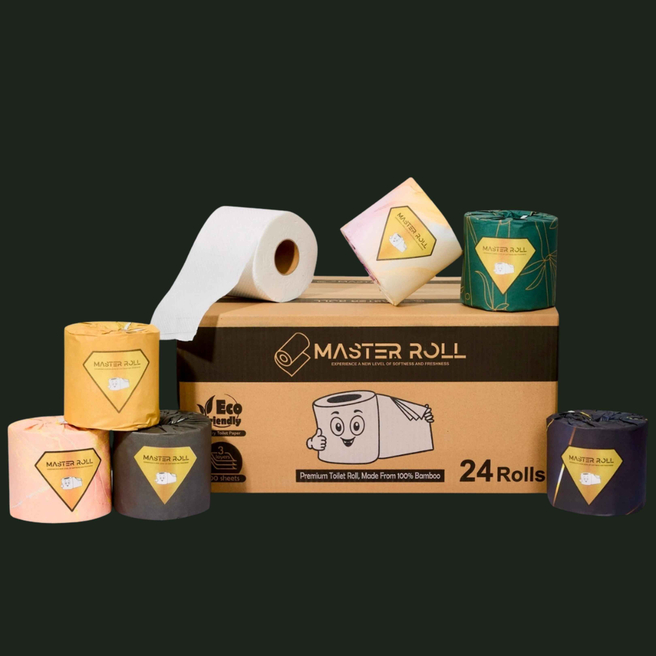
In recent years, the demand for sustainable and eco-friendly alternatives has surged, and one product gaining popularity is bamboo toilet paper. This eco-conscious option is not only better for the environment but also offers practical benefits for consumers. Bamboo toilet paper is made from bamboo fibers, a renewable resource that grows rapidly, making it an attractive alternative to traditional toilet paper made from trees. Let’s explore why bamboo toilet paper is becoming a preferred choice for those seeking a greener lifestyle.
1. Sustainability
Bamboo is one of the fastest-growing plants in the world, with some species growing up to 35 inches per day. This rapid growth makes bamboo a highly renewable resource, as it can be harvested without causing deforestation. Unlike trees, which can take decades to mature, bamboo can be harvested in just 3-5 years, making it an eco-friendly alternative to traditional toilet paper.
Additionally, bamboo requires fewer resources to grow. It needs less water than trees and doesn't require pesticides or fertilizers. This results in less environmental pollution and a smaller carbon footprint during the production process. Eco-Friendly Toilet Paper
2. Softness and Durability
One common misconception is that eco-friendly products sacrifice quality for sustainability. However, bamboo toilet paper is known for being both soft and durable. Bamboo fibers are naturally smooth and long, which allows for a gentle feel against the skin. At the same time, they are strong enough to ensure that the toilet paper doesn’t tear easily, providing a balance of comfort and functionality.
In fact, many users find bamboo toilet paper just as comfortable—if not more so—than regular toilet paper, making the switch an easy one for households looking to reduce their environmental impact.
3. Biodegradability
Bamboo toilet paper is not only made from sustainable materials, but it is also fully biodegradable. This means it breaks down naturally over time, reducing the burden on landfills and decreasing the overall environmental impact. Traditional toilet paper often contains chemicals, such as chlorine, which can be harmful to the environment. Bamboo toilet paper, on the other hand, is typically produced with fewer chemicals, making it a safer and more environmentally friendly choice. Sustainable Toilet Paper
4. Hypoallergenic and Chemical-Free
Another advantage of bamboo toilet paper is that it’s often free from harsh chemicals, dyes, and fragrances. Bamboo’s natural antibacterial properties make it an excellent choice for people with sensitive skin or allergies. Many traditional toilet papers undergo chemical treatments to achieve their whiteness and texture, which can cause irritation for some individuals. Bamboo toilet paper, being naturally hypoallergenic, offers a gentler option.
5. Cost Considerations
While bamboo toilet paper may be slightly more expensive than traditional paper, the price difference has been narrowing as it becomes more popular and widely available. Many consumers are willing to pay a bit more for the peace of mind that comes with making a sustainable choice. Additionally, as more companies enter the bamboo toilet paper market, prices are likely to become more competitive, making it accessible to a broader audience. Plastic-Free Toilet Paper
Conclusion
As awareness of environmental issues grows, products like bamboo toilet paper provide consumers with an opportunity to make a positive impact through everyday choices. With its sustainability, softness, biodegradability, and hypoallergenic qualities, bamboo toilet paper offers a practical and eco-friendly alternative to traditional options. Chemical-Free Toilet Paper
By choosing bamboo, individuals can contribute to reducing deforestation, lowering their carbon footprint, and supporting a more sustainable future.